Whale Watching
Whale watching is like embarking on a serene journey through a living, underwater museum. The gentle giants that roam the ocean depths captivate the hearts and minds of those who seek to witness their grandeur up close.
However, the real magic lies in the untold stories of these magnificent creatures and the mysteries that surround their behavior. Understanding the intricacies of their world opens a door to a realm of wonder and discovery.
Explore further to unravel the secrets that these majestic beings hold, revealing a world beyond imagination.
Key Points
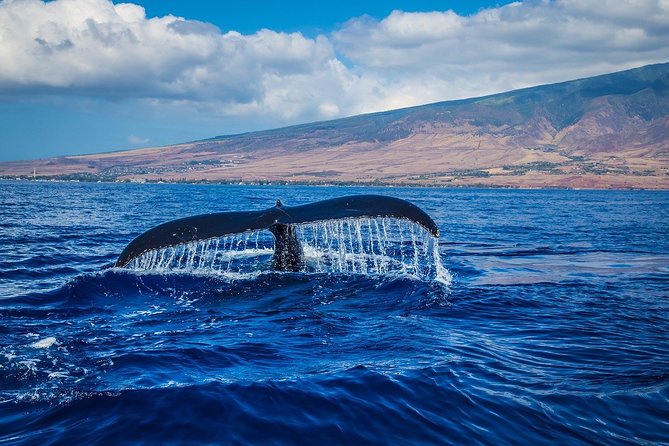
- Optimal spotting times vary, with peak seasons and summer months offering ideal conditions.
- Choosing smaller group tours enhances the whale watching experience.
- Understanding whale behavior enriches appreciation and knowledge.
- Supporting conservation efforts ensures sustainable whale watching practices.
Best Time to Go Whale Watching
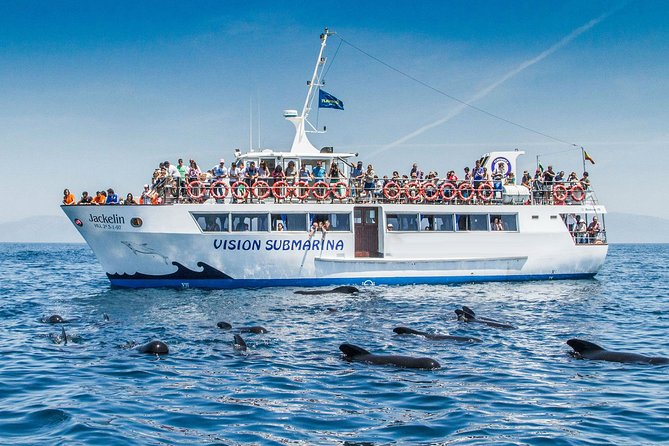
For optimal chances of spotting whales in their natural habitat, visitors are encouraged to plan their whale watching excursions during the peak season. Weather conditions play a crucial role in the visibility of these majestic creatures. During the peak seasons, typically in the summer months, the weather is more predictable, with calmer seas and clearer skies, providing ideal conditions for whale watching.
It’s important to adhere to local regulations when embarking on these excursions, ensuring the safety of both the visitors and the whales. Many areas offer designated viewing platforms that not only provide a safe vantage point but also help in minimizing disturbances to the marine life. By choosing the right time and following local guidelines, visitors can enhance their whale watching experience.
Choosing the Right Tour
When selecting the ideal whale watching tour, consider the group size and amenities offered to ensure a memorable and comfortable experience.
-
Tour Options
- Look for tours that offer smaller group sizes to enhance the experience and increase the chances of a closer encounter with the whales.
- Check for specialized tours that focus on specific species of whales or offer unique experiences like sunset whale watching cruises.
-
Booking Tips
- Book in advance to secure your spot, especially during peak whale watching seasons when tours can fill up quickly.
- Read reviews and ratings from other travelers to get insights into the quality of the tour and the likelihood of spotting whales.
Choose a tour that suits your preferences and provides the best chance for an unforgettable whale watching adventure.
What to Bring on the Tour
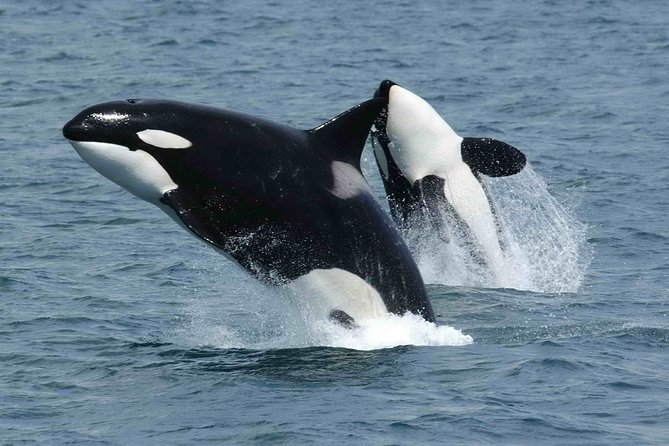
To ensure a comfortable and enjoyable whale watching experience, travelers should pack essential items that cater to their comfort, safety, and enjoyment during the tour.
Packing essentials for a whale watching tour include sunscreen, sunglasses, a hat, and layered clothing to prepare for changing weather conditions. It’s also advisable to bring motion sickness medication if you’re prone to seasickness.
A camera or binoculars can enhance your experience by allowing you to capture memorable moments or get a closer look at the magnificent creatures. Plus, don’t forget to bring snacks and water to stay hydrated and energized throughout the tour.
Understanding Whale Behavior
Travelers embarking on a whale watching tour can gain a deeper appreciation for these majestic creatures by observing and interpreting their fascinating behaviors in their natural habitat.
-
Whale Migration: Witnessing the annual migration patterns of whales can be a mesmerizing experience. These incredible marine mammals travel vast distances, showcasing their adaptability and strength.
-
Breaching Behaviors: The sight of a whale breaching, propelling its massive body out of the water and crashing back down, is a thrilling spectacle. This behavior is believed to serve various purposes, from communication to removing parasites.
-
Social Interactions: Observing how whales interact with each other can provide insight into their complex social structures. From playful behaviors to nurturing young calves, these interactions showcase the intricate bonds within whale communities.
Capturing Memorable Moments
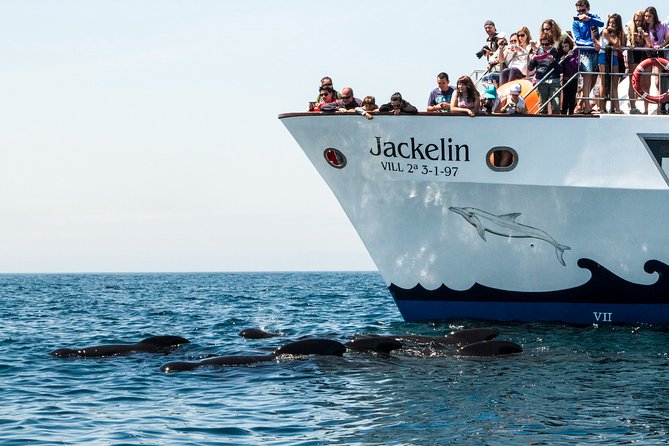
Embark on your journey to preserve unforgettable memories during your whale-watching excursion by capturing captivating moments of these marine giants in their natural habitat.
When photographing whales, consider the following photography tips to ensure you capture the best shots:
- Use a zoom lens to maintain a safe distance.
- Focus on the eyes and unique features.
- Be patient for the perfect shot.
Wildlife encounters during whale watching can be unpredictable, so always be prepared with your camera settings and ready to adapt to different lighting conditions.
Remember to respect the animals’ space and behavior to both capture remarkable photos and safeguard the well-being of these majestic creatures.
Enjoy the thrill of documenting these awe-inspiring moments while creating lasting memories of your adventure.
Conservation Efforts in Whale Watching
Conservationists worldwide actively engage in promoting sustainable practices and environmental awareness in the context of whale watching. To achieve this, they focus on:
-
Conservation Initiatives: Various organizations work on developing and implementing conservation projects aimed at protecting whale populations and their habitats. These initiatives often involve collaborations between governments, researchers, and local communities to ensure the long-term well-being of these majestic creatures.
-
Research Projects: Ongoing research plays a crucial role in understanding whale behavior, migration patterns, and the impact of human activities on these marine mammals. By conducting research projects, scientists can gather valuable data to inform conservation efforts and advocate for policies that safeguard whales in their natural environments.
-
Community Engagement: Conservationists prioritize engaging with local communities to raise awareness about the importance of preserving marine ecosystems and the role whales play in maintaining ecological balance. Through education and outreach programs, they aim to inspire people to support conservation initiatives and contribute to the protection of whales worldwide.
Whale Watching Etiquette Guidelines
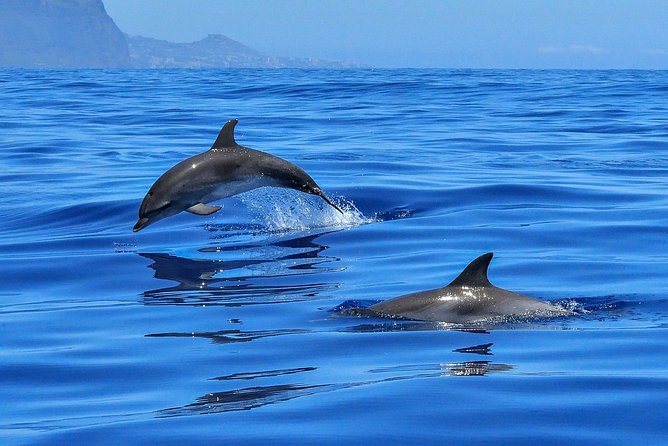
When observing whales in their natural habitat, it’s essential to adhere to specific etiquette guidelines to ensure the well-being of these magnificent marine creatures. Proper behavior is crucial to minimize stress on the whales. This includes keeping a safe distance from the animals, following designated viewing guidelines, and avoiding sudden movements or loud noises that could startle them.
Respectful interactions involve refraining from touching, feeding, or attempting to swim with the whales. It’s important to remember that we’re visitors in their environment and should treat them with the utmost care and consideration. By following these etiquette guidelines, whale watchers can enjoy a meaningful and responsible experience while safeguarding the welfare of these incredible creatures.
Tips for a Successful Whale Watching Experience
To enhance your whale watching adventure, consider these expert tips for maximizing your experience and connecting with these majestic marine mammals.
-
Binocular Basics: Invest in a good pair of binoculars to get a closer look at the whales as they breach and spout. This will enhance your viewing experience and allow you to see details that may not be visible to the naked eye.
-
Safety Precautions: Follow all safety guidelines provided by the tour operator. Stay at a safe distance from the whales to avoid disturbing them or putting yourself in harm’s way. Remember, these are wild animals, and their behavior can be unpredictable.
-
Respect Wildlife: Remember to respect the marine environment and wildlife. Avoid littering, loud noises, or any actions that may disrupt the natural behavior of the whales. Enjoy observing them in their natural habitat while minimizing your impact on their surroundings.
Common questions
Are There Any Age Restrictions for Whale Watching Tours?
When considering age restrictions on tours, safety measures and experience levels play a crucial role. It’s important to check if the activity is suitable for all ages. Pricing options and tour durations may vary.
What Happens if We Don’t See Any Whales During the Tour?
If travelers don’t spot marine life, it can lead to disappointment. However, tour operators often educate on conservation efforts and may offer alternative activities like exploring the coastal ecosystem or learning about local wildlife.
Can We Bring Our Own Food and Drinks on the Whale Watching Tour?
Travelers can bring their own food options and drink choices on the tour. It allows for personal preferences and dietary needs. This flexibility enhances the overall experience, ensuring guests are comfortable and satisfied throughout their journey.
Is There a Restroom on Board the Whale Watching Vessel?
Restroom availability is essential for comfort on board any vessel. Ensuring facilities are easily accessible can contribute to a more pleasant experience. Plus, providing resources to prevent seasickness can help passengers enjoy their journey to the fullest.
What Happens in Case of Bad Weather During the Tour?
In case of bad weather during the tour, they prioritize weather safety. If needed, the tour may reschedule to ensure everyone’s well-being. It’s essential to follow guidelines for your safety and enjoyment.
Last Words
To sum it up, whale watching offers a unique and unforgettable experience for those who seek to witness these incredible creatures in their natural habitat.
With the right tour, timing, and knowledge of whale behavior, participants can capture unforgettable moments and contribute to conservation efforts.
By following etiquette guidelines and tips for a successful experience, you can enjoy a magical encounter with these majestic giants, leaving them with lasting memories of their time spent on the ocean.